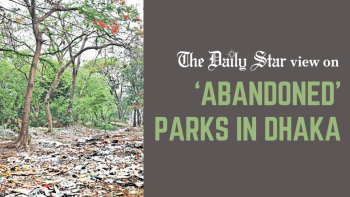Restore Shariatpur stadium immediately

As Bangladesh grapples with dwindling communal spaces and playing fields, the news of Shariatpur Stadium being rendered unusable due to the imprudent actions of a single authoritative figure has come as a surprise. According to a Prothom Alo report, the stadium was supposed to be the site for Bangabandhu T20 Cricket Tournament as well as players' practices. However, it was then leased to a local organisation for organising a fair, compromising its sporting function for at least two months. The district commissioner allegedly made this decision without consulting with local sports organisations or government officials.
The situation has since spiralled into an intractable conundrum as, in response to protests, the authorities halted the fair, despite its organisers having already begun constructing necessary infrastructure. The organisers, who were supposed to restore the stadium after the fair, now claim they had invested Tk 40 lakh and need a further Tk 10 lakh for restoration—and without fair profits, they cannot afford it. Consequently, with the half-finished infrastructure abandoned, the stadium can neither host the fair nor is suitable for sporting activities. This is ludicrous.
If the allegations about the DC's role are true, we wonder how such unilateral action could occur, and what could have possibly influenced it. As things stand, facilities for professional sports in Bangladesh, particularly in regional areas, are already inadequate, and incidents like this show how—even with a dedicated stadium, considerable incentives, and funding—sporting purposes can be sidelined by other ventures. We also have to talk about unplanned infrastructural development that has considerably shrunk public spaces in the country. Often, spaces dedicated to recreation are also appropriated for other activities. The Shariatpur stadium itself was subject to several such interventions in the past.
We cannot deny the importance of communal events like fairs and concerts, and hence the Shariatpur incident should be viewed within the broader context of systemic neglect towards both sports and communal spaces. This deserves a wider conversation about how we can preserve both in an increasingly urbanised Bangladesh. For now, however, we urge the Shariatpur authorities to take steps to restore the stadium immediately.


 For all latest news, follow The Daily Star's Google News channel.
For all latest news, follow The Daily Star's Google News channel. 










Comments